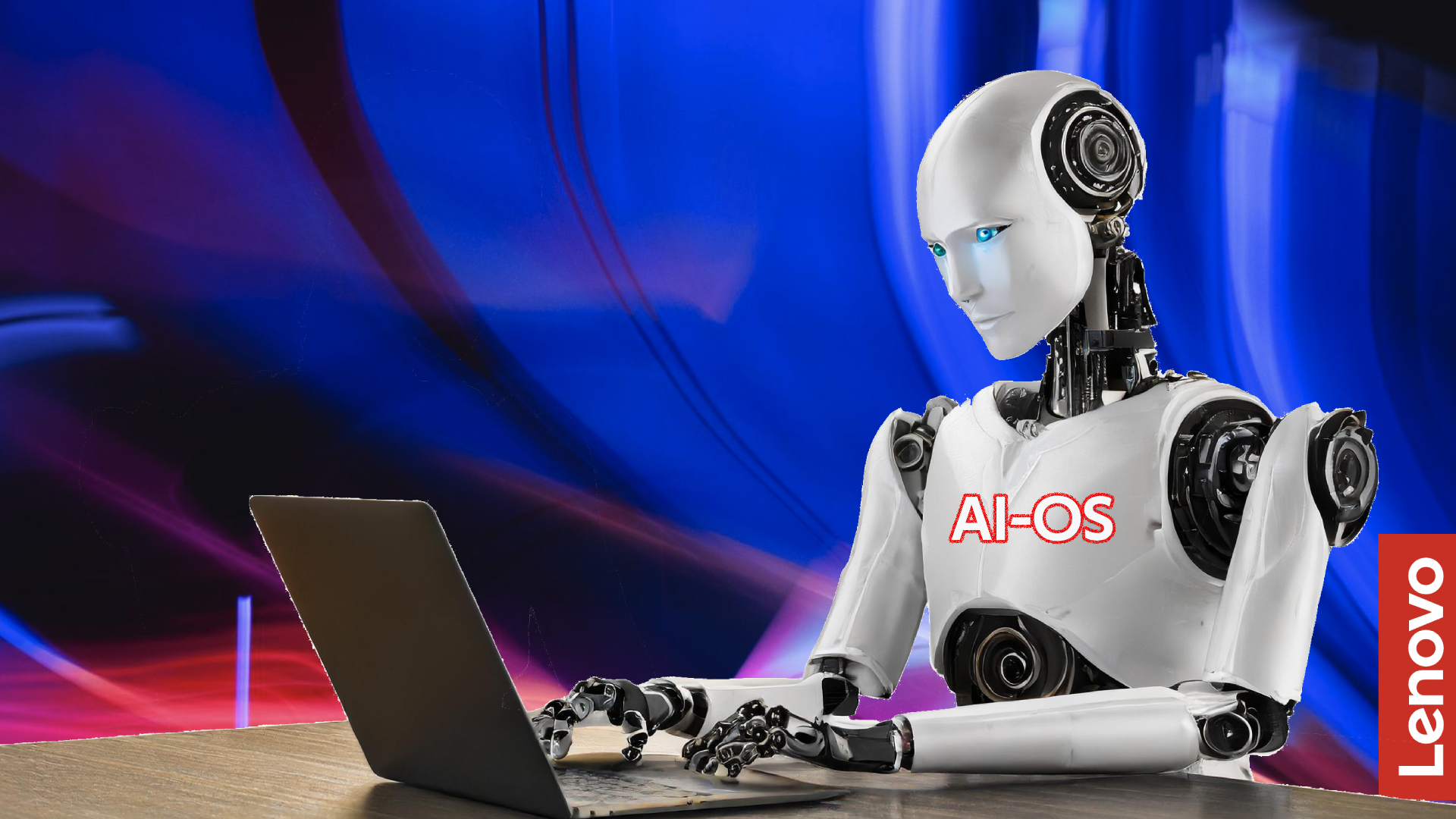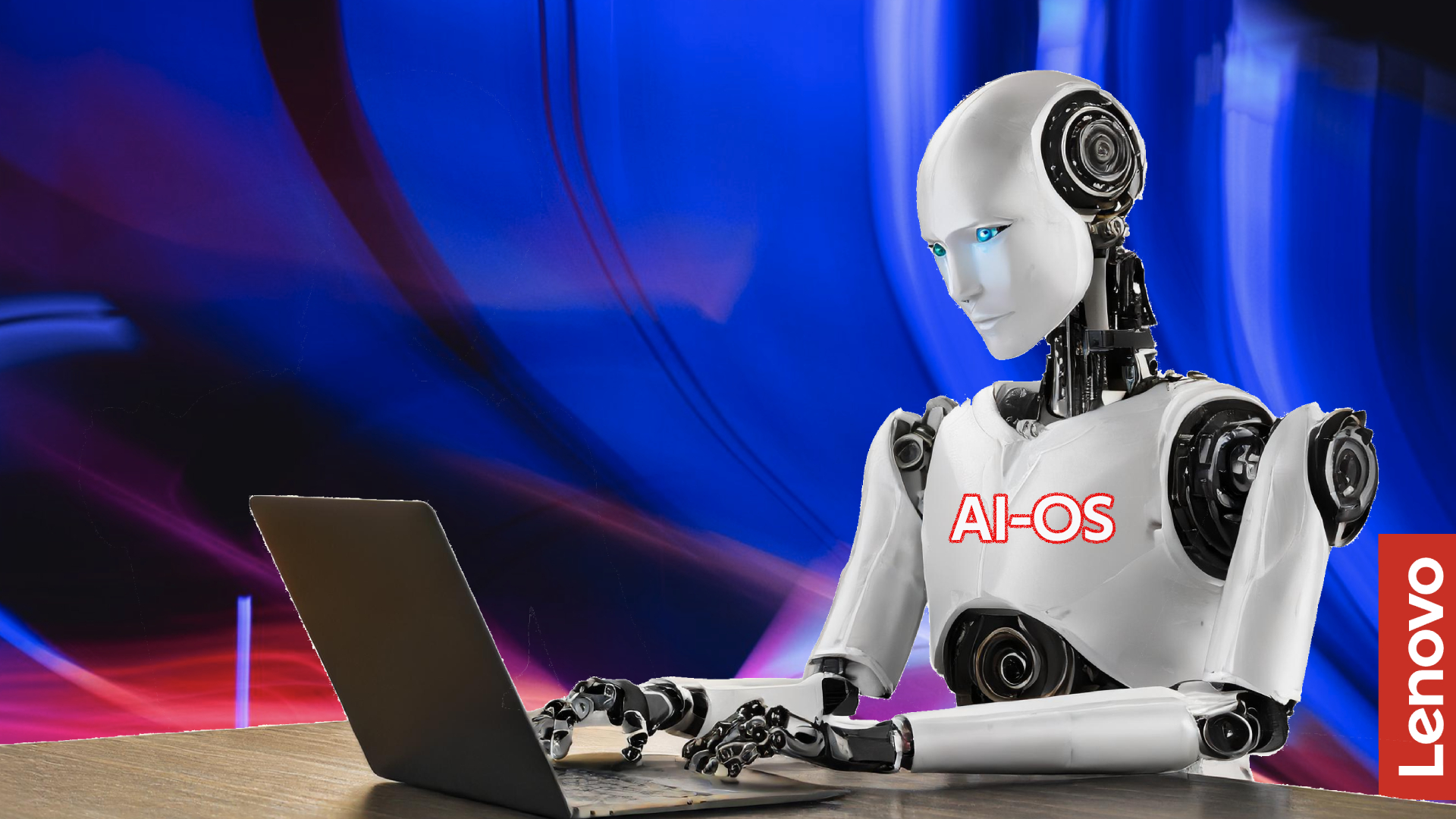According to a report from Tech Radar, word on tech street is that Lenovo is cooking up a game-changer: an AI-powered operating system (OS) vying for a seat at the table with Windows 12.
This news, dropped by Lenovo EVP Liu Jun at CES 2024, follows the brand’s “full-stack intelligence strategy” announcement last year, solidifying Lenovo’s commitment to AI dominance.
But what does this AI OS entail? While details are still under wraps, Jun hinted at “multi-terminal products,” likely focusing on AI PCs and personal assistants. The vision expands beyond mere devices, encompassing “AI-embedded smart terminals” designed to democratize AI access with a strong focus on privacy and security.
With all the recent AI hoopla, from Android devices being packed with it, to the Neural Processing Units (NPU) of Intel’s Core Ultra CPUs and AMD’s newest processor lineup all being infused with the next-gen technology, that could be life and industry-altering. It seems every tech brand is creating some form of its own AI applications or in this case, possibly an OS to take full advantage of the NPU packing chipsets.
The Future of AI PCs could be proprietary
Beyond product announcements, this move reflects a broader trend in tech, Chinese and global companies are exploring and developing their operating systems. Success for Lenovo’s AI OS could mean a formidable competitor to Microsoft Windows, mirroring the challenge Huawei’s HarmonyOS poses to Android.
The future of AI integration into our daily lives may become a more personal choice than ever before if tech giants start developing proprietary operating systems. Could the PC market be moving on from the aging Microsoft Windows?
Let’s face it, the Windows platform has had its fair share of flaws since Windows 7, and Windows 11 has struggled to connect with users from day one. With many to this day holding on tightly to their beloved Windows 10.
With many jumping ship for the more user-friendly Apple ecosystem, maybe it’s time for tech brands such as Lenovo to do what’s in the best interest of users and the company and develop a proprietary, user-friendly operating system and ecosystem to rival Apple. It begs one to wonder, will Lenovo’s AI OS disrupt the game? Only time will tell, but one thing’s for sure: the battle for our desktops and devices is heating up, and the stakes are higher than ever.








